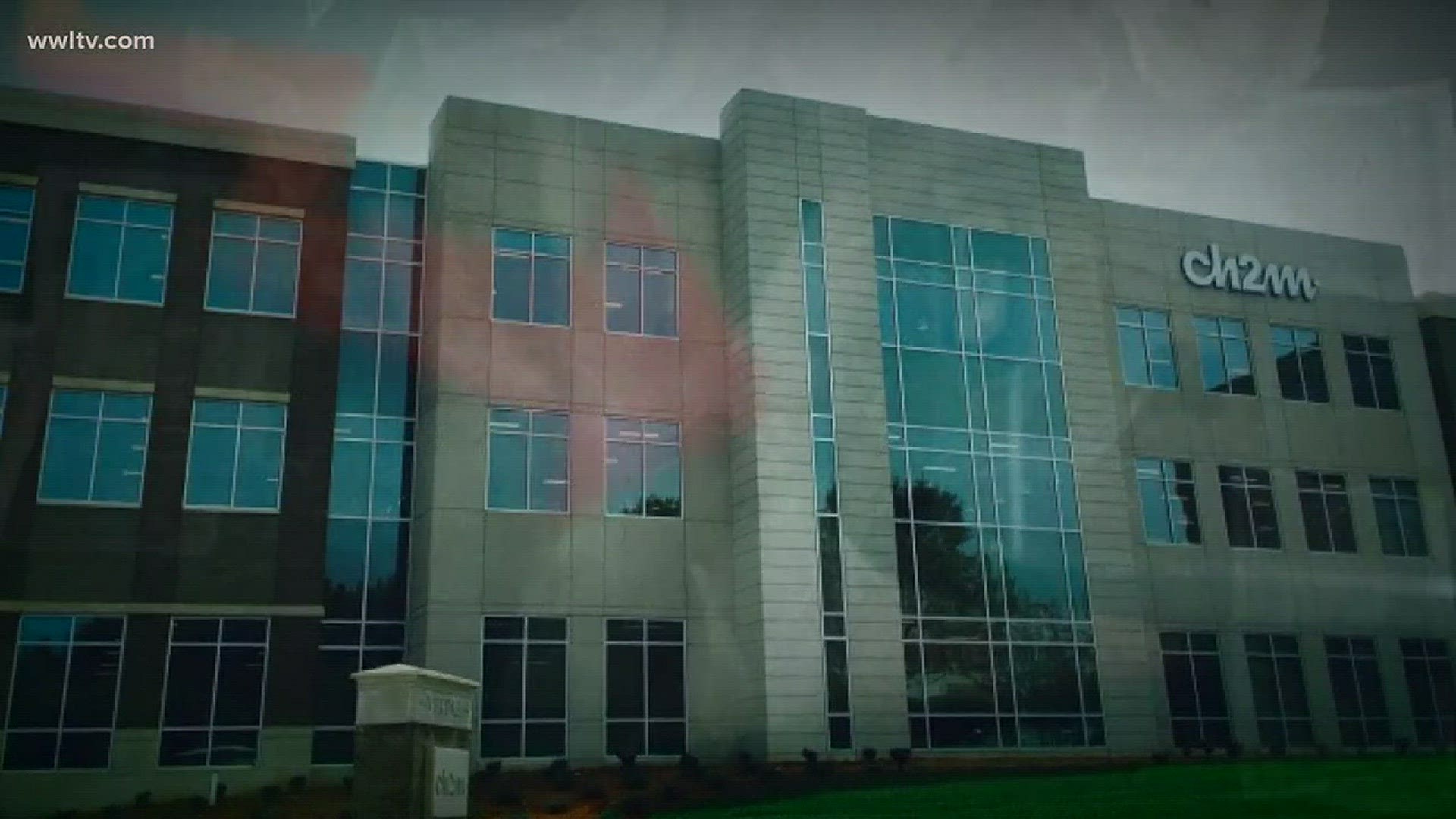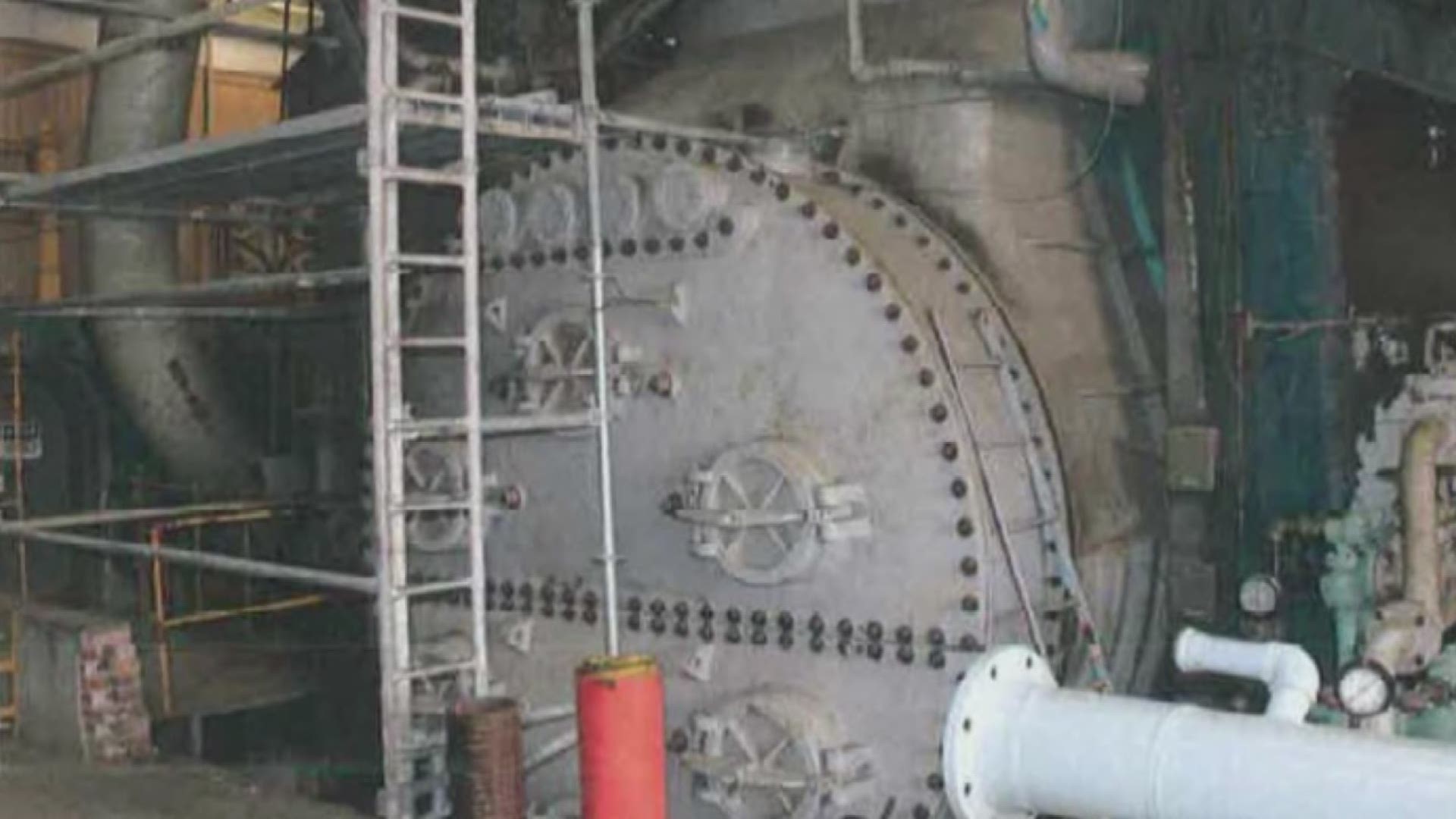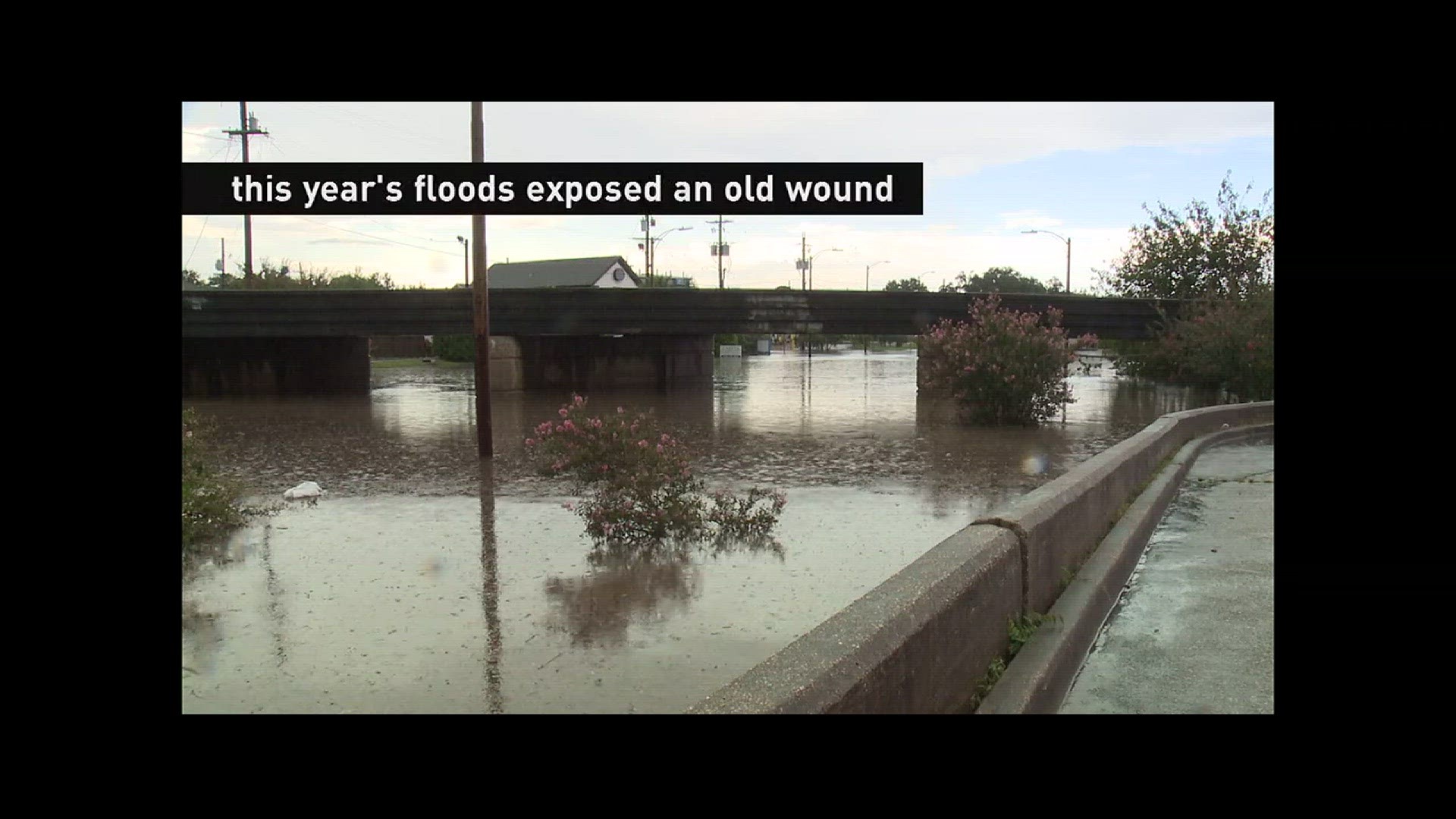Down the Drain is a WWL-TV investigative project that explores what went wrong and where the blame lies for New Orleans' drainage crisis. Down the Drain was reported and produced by WWL-TV's investigative team: Katie Moore, David Hammer, Mike Perlstein, TJ Pipitone and Danny Monteverde. Infographics and multimedia design by Sam Winstrom and Kevin Dupuy.
The New Orleans Sewerage & Water Board has paid a Colorado consulting firm $6 million more than what FEMA considers a “reasonable” fee to manage a critical power-plant project – and so far, with little to show for it.
In fact, the agency has allowed the company's fees to balloon over the past six years, to the point where the company now stands to ultimately collect four times more than the “reasonable” rate by the time its contract is through, according to public records obtained by WWL-TV.
The agency hired Colorado-based CH2M Hill after an open bidding process in February 2013 to oversee what’s now a $185 million effort to improve its antiquated power plant. The facility, with four steam turbines and one gas-fired combustion turbine, had been the pride of the agency for 80 years before Hurricane Katrina caused an estimated $500 million in damage.
The S&WB considers its in-house power plant essential because it hasn’t been able to rely on electricity from the local utility, Entergy, especially during storms. So, when $141 million in FEMA grants became available in 2012, Mayor Mitch Landrieu’s administration asked to use them at the S&WB's plant.
But the project has so far failed to produce a reliable power plant. All of the old turbines scheduled for refurbishment went down at once in March, leaving the S&WB with only a small generator and a backup turbine built by the Corps of Engineers.
And the city went into hurricane season this year with less than a third of the drainage system's original power-generating capacity, a reality few had been aware of until the severe flooding that struck on July 22 and Aug. 5.
CH2M
CH2M first got involved with the drainage system in New Orleans in 1994, writing a report that recommended replacing the S&WB's entire power plant with new equipment over a 20-year span.
None of that had been done by the time the S&WB brought the firm back, almost two decades later, to manage the refurbishing of old turbines.
Ironically, part of the firm's job was to hold down costs. Yet, it's CH2M’s own consulting fees that have climbed almost unchecked, even though most of the turbine restoration work is yet to begin.
Text messages turned over to WWL-TV under the public records law show that after power problems contributed to major drainage failures Aug. 5, top Sewerage & Water Board officials questioned whether CH2M might be taking advantage of them.
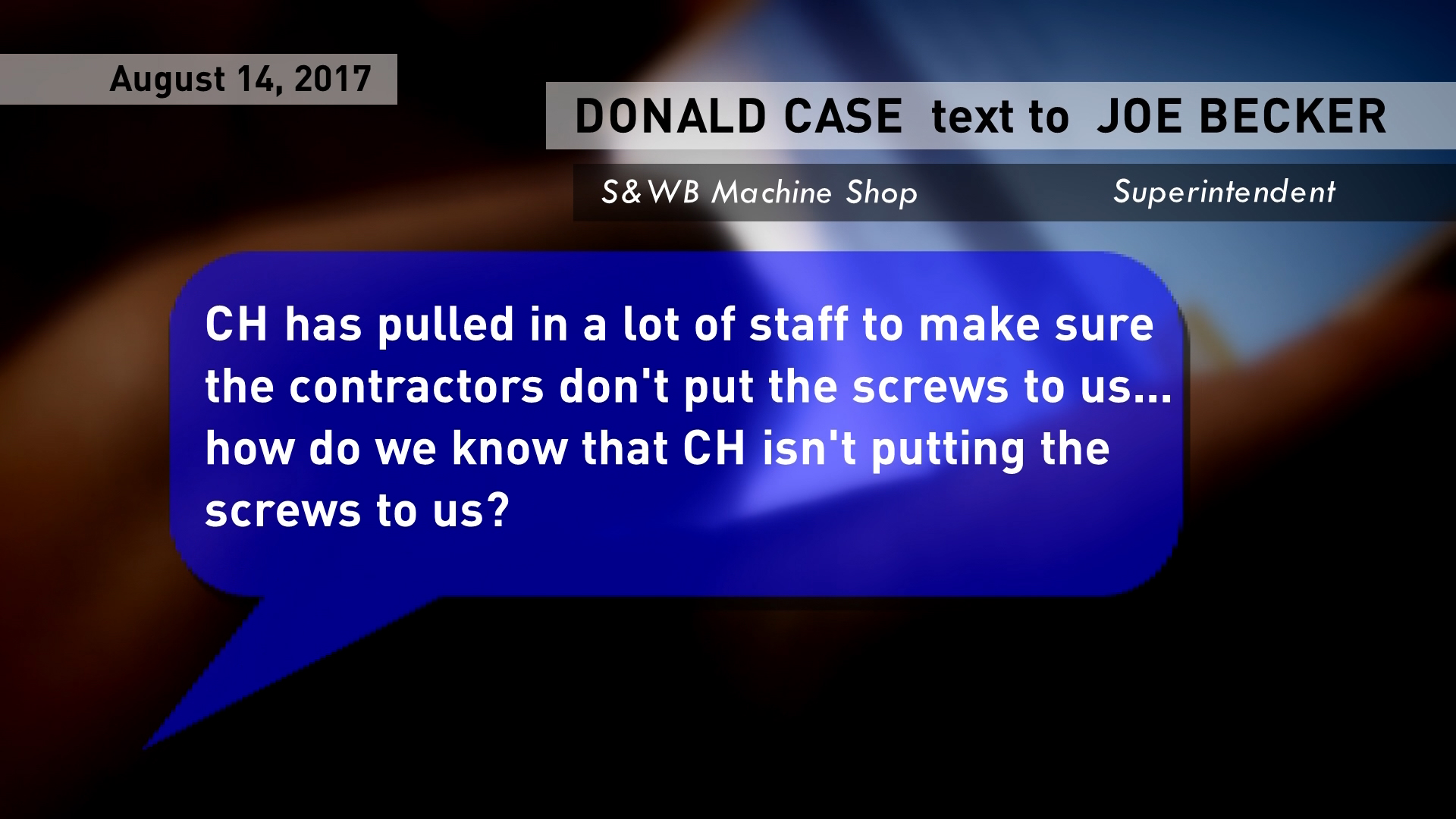
On Aug. 14, nine days after the flooding, Donald Case from the S&WB’s machine shop texted then-General Superintendent Joe Becker on the progress in fixing broken turbines.
“CH has pulled in a lot of staff to make sure the contractors don't put the screws to us... how do we know that CH isn't putting the screws to us?” he asked, apparently never getting a response.
Four days later, Bruce Adams, now the highest ranking official left at the S&WB, sent another text to Becker, pressing the issue further.
“Has it occurred to you that CH2 might be so anxious to junk these turbines to protect their liability?” Adams texted on Aug. 18, implying that the agency’s four old turbines were suffering repeated failures by design, to force the S&WB to scrap the refurbishment effort altogether.
“Absolutely,” responded Becker, who was later forced to resign over the S&WB’s response to the flooding. “I‘m not sure they have thought that far through. I am sure they see a t4 (Turbine No. 4) disaster turning into our t4 savior. I don‘t see much that we can do about it. Do you want to be the one that slows down this train?”
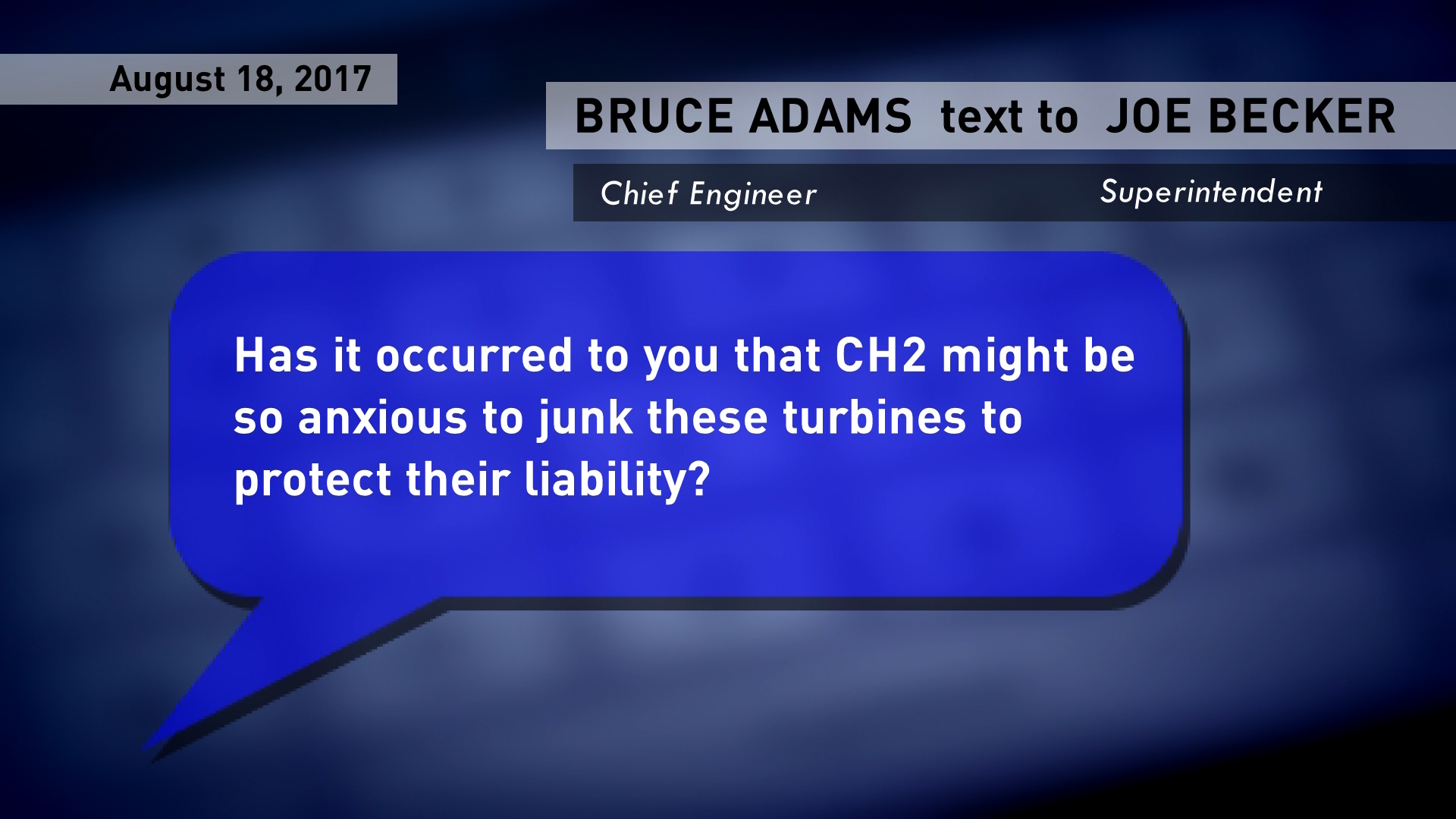
“Well, we still continue on these turbines,” Adams replied, a clear reference to the near-constant and repetitive repairs the agency has had to pursue since the shocking loss of three turbines at once in early March.
Despite the obvious distrust among members of the agency, the Landrieu administration has doubled down on CH2M. When the city doled out a new $3 million contract in August to oversee work and control costs for emergency repairs to power equipment and drainage pumps after the summer flooding, it again selected CH2M.
The mayor announced this week that a former CH2M engineer, Joe Sensebe, will take over as the S&WB’s new interim director of operations.
State records show CH2M has contributed more than $5,000 to Landrieu’s political campaigns since 2003.
Part of the emergency work now being overseen by CH2M is $15 million in repairs to two turbines, Turbines Nos. 3 and 5. They were supposed to be refurbished already using $40 million in FEMA grants managed by CH2M, but that work hasn’t even begun yet because CH2M has been waiting for another contractor to finish refurbishing Turbine No. 4 -- a 100-year-old steam-powered unit that former S&WB Deputy Superintendent Madeline Goddard said at a 2013 S&WB meeting “may not be repairable.”
Turbine 4 was supposed to the S&WB’s workhorse for the drainage system, so the plan was to fix it in 2012, have it back in service in 2013 and start on Turbines 3 and 5 once the power plant had Turbine 4’s crucial 20 megawatts back online.
Instead, the S&WB has approved 65 change orders to the Turbine 4 contracts. That pushed the 2011 price of $12 million up to $26 million as of August 2017, with no hope of restoring the turbine to service before April 2018.
“I can't imagine dragging one of these jobs out for years and years and years,” said Vint Massimini, owner of Gulf Engineering machine shop in Harahan. “We do repair work all the time for the majors, the big chemical plants and refineries. If they drug the jobs out for years and years and years, they'd be out of business.”
The lone bidder for the Turbine 4 work, Industrial and Mechanical Contractors, doesn't have its own machine shop, so it has farmed the work out to subcontractors.
IMC is owned by Harold Heidingsfelder. As the price of Turbine 4 soared, he sent more than $2 million of work to a machine shop in Kenner owned by a company called Alfred Conhagen Inc. of Louisiana. The president of that company is Heidingsfelder’s son, Eric.
“IMC subcontracts part of their work load to various specialty subcontractors with various skill sets,” Harold Heidingsfelder said in an email to WWL-TV. “IMC contracted work to Conhagen, a rotating specialist contractor, as the work dictated in the best interest of IMC and the project.”
The whole FEMA project, known as the Power Plant Retrofit project, includes refurbishing three old turbines, fixing damaged steam boilers, adding new electric feeder lines and building a new water intake station.
The project has been wracked by slow spending and dubious decision-making ever since FEMA approved Hazard Mitigation grants for the project in 2012. One of the first things CH2M did when it was hired was analyze different options for either refurbishing the old turbines or buying new ones. It only priced buying one new turbine out of four and found it was slightly cheaper than refurbishing it; and yet the S&WB decided to refurbish rather than replace.
Only $50 million of the $150 million FEMA grant awarded to the S&WB for the power plant project has been spent in the last five years, mainly because of the constant delays with Turbine 4.
CH2M’s original management fee was $12.5 million. FEMA and Louisiana’s Governor’s Office of Homeland Security and Emergency Preparedness reviewed the contract in 2014 and called the fee “not reasonable.” FEMA stopped reimbursing the S&WB for CH2M’s fees when they reached $7 million in mid-2015.
But the company has billed the S&WB another $6 million to oversee the entire Power Plant Retrofit project since then, all of which the cash-strapped S&WB has had to pay out of local taxpayer funds. And yet, the board has continued to approve change orders allowing CH2M to increase its fees, all the way to $28 million.
CH2M declined to answer questions about their fees, referring them to the S&WB.
The S&WB says local tax money will have to pay the rest of those consulting fees because FEMA stopped reimbursing those costs.
"After five years ... you run out of excuses"
Bill Chrisman spent three years as project manager at the pumping stations and served as the city's director of capital projects. He was appalled to see that CH2M’s management fee had reached 15 percent of the $185 million project, saying less than 5 percent would be typical.
“They need oversight; they need oversight really bad,” Chrisman said. “Do you have the right people here? Is CH2M Hill the right contractor? You know, after five years, and a turbine isn't online, you run out of excuses.”
Massimini looks at the constant delays and extra charges and can’t understand why local companies like his firm, which has been fixing turbines and pumps in the area for 93 years and helped install the S&WB’s original power equipment, aren’t involved.
“There's no need to go find consultants all over the United States,” he said. “There's plenty of brilliant people right here in the city.”
Instead, CH2M is charging taxpayers thousands of dollars every month to fly its employees in from Denver, to cover their hotel stays and their meals. The charges are numerous but rarely exorbitant, although there are some glaring exceptions.
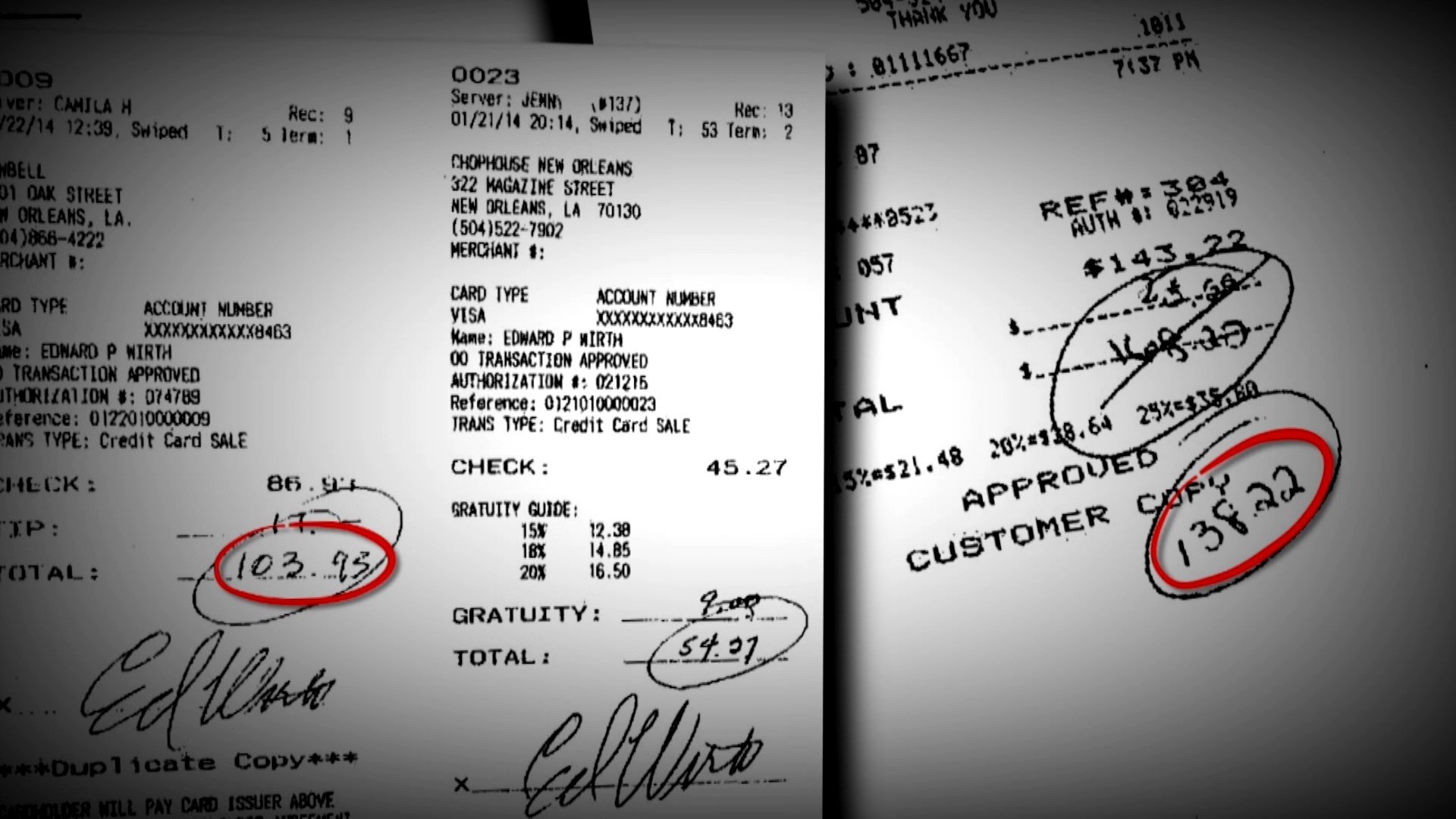
One engineer flew in for a few days in January 2014 and was reimbursed for a $103.93 lunch at the restaurant Cowbell. Another engineer came to New Orleans for a week in February 2014, charged the S&WB more than $23,000 at $191 an hour for that month and then collected more than $1,000 in travel reimbursements, including for a $138.22 dinner at the Bon Ton Café.
Neither meal receipt was itemized, nor was there any explanation of how many people were on the bill, raising questions from state reviewers.
Paul Rainwater of the S&WB’s interim management team defended the company's work.
“The gentleman you're talking to from Denver has managed powerplants in Denver for several large utilities. He's very good at what he does,” Rainwater said. “So, I have no complaints about contractors.”

